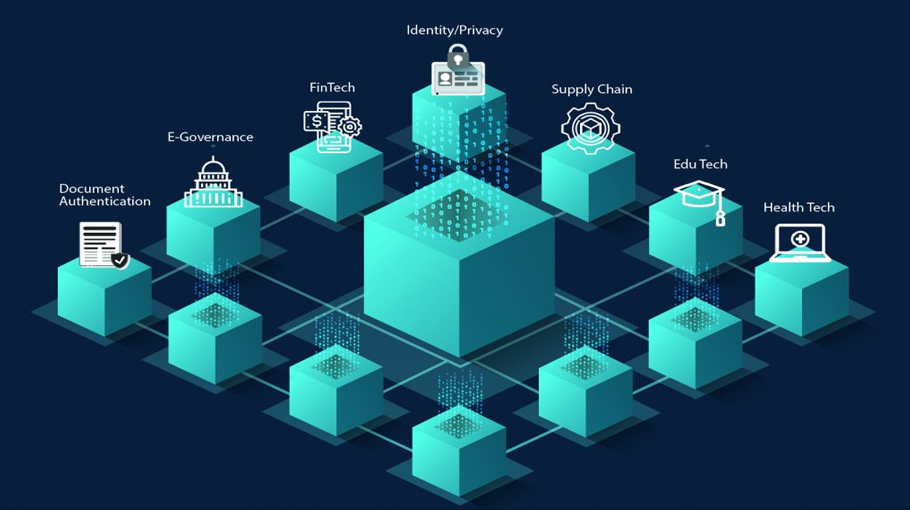Blockchain Pioneers: Bangladeshi Students Lead in Intellectual Property Revolution

The need for decentralised information management systems is becoming more pressing in the ever-changing digital landscape, particularly in developing countries where digital assets are becoming increasingly important. As Bangladesh struggles to keep up with this rapidly developing technology, a light of hope appears in the efforts of progressive young people.
A group of students has jumped into blockchain innovation in spite of Bangladeshi colleges' lack of institutional blockchain teaching. This encouraging trend was demonstrated on November 17 of this year when Team Apocalypse, a Bangladeshi team, won the gold medal in the International Blockchain Olympiad 2023 in Amsterdam.
The initiative that won, 'IPBlockchainPro,' is proof of the potential that young people in Bangladesh possess. In a nation where blockchain technology is still relatively new, these students demonstrated their abilities by creating a decentralised platform for intellectual property management, protection, and commerce.
IPBlockchainPro solves the slow patent registration system by streamlining procedures and facilitating the connection of innovators, SMEs, and patent seekers with licensees. The importance of such a transparent and safe technology application cannot be emphasised in a country where more than five million NID card data were recently leaked online. The Daily Star issued a story with the headline "Over 5 crore Bangladeshi citizens' data'remains exposed' online" on July 8 of this year.
The success of Team Apocalypse is in line with the pressing need for decentralised solutions in a society where digital assets are becoming more and more important. Their goal is to support the Sustainable Development Goals, which include peace, robust institutions, economic growth, and industry innovation, in addition to technical innovation.
In addition to winning Team Apocalypse a €2,400 prize as part of the International Blockchain Olympiad, this success story put Bangladesh on the map of blockchain innovation worldwide. This inspiring story of success highlights the unrealized potential and revolutionary influence that young innovators can have as Bangladesh moves closer to a digital future.
Blockchain in Bangladesh: Paving the Path to a Digital Revolution
Bangladesh, in the middle of South Asia, is about to undergo a digital revolution, and blockchain technology is leading the way in this change. Blockchain provides a decentralised paradigm that has the ability to transform companies and empower communities, despite its affiliation with cryptocurrency. It is critical to acknowledge the profound changes this technology has the potential to bring about to our social and economic landscapes as we negotiate its benefits and difficulties.
Unleashing Financial Inclusion: The potential of blockchain technology to offer financial services to the unbanked people is among its most exciting features. Blockchain guarantees safe and transparent transactions in a nation where traditional banking infrastructure might not be accessible to everybody, providing opportunities for financial inclusion for all.
Transforming Supply Chains: The transparency and traceability of blockchain technology can have a substantial positive impact on industries like agriculture and textiles. We can strengthen trust among stakeholders and customers by ensuring the authenticity of products through the efficient documentation and verification of every stage of the supply chain.
Securing Digital Identities: Blockchain offers a secure foundation for digital identity management in a society plagued by fraud and identity theft. This invention not only safeguards people but also lays the groundwork for a digital society that is more reliable and linked.
Smart Contracts: For industries like real estate, law, and insurance, the automation of contractual agreements through smart contracts is revolutionary. Blockchain facilitates faster and more efficient transactions by reducing administrative overhead and optimising processes, which in turn promotes economic growth.
Effective International Trade: Given that our country is heavily involved in international trade and remittances, it is impossible to overestimate the potential of blockchain technology to make cross-border transactions easier. Bangladesh's standing on the international economic scene could improve as a result of the cost and efficiency reductions.
Benefits of Security and Transparency: The intrinsic transparency of blockchain makes transactions apparent to all parties involved, encouraging responsibility and confidence. Its cryptographic and decentralised features provide a further degree of protection against fraud and illegal access.
Obstacles Ahead: Nevertheless, it is important to recognise the obstacles ahead as we enter this revolutionary period. To fully realise blockchain's promise in Bangladesh, obstacles like regulatory ambiguity, scalability constraints, the need for extensive education, and interoperability problems must be resolved.
An Appeal for Intervention: Adopting blockchain is equivalent to adopting innovation. To provide scalable solutions, raise awareness, and set clear regulations, corporations, government agencies, and educational institutions must work together. Public education campaigns about the advantages and dangers of blockchain technology are essential to establishing a foundation of confidence and comprehension.
In summary, Bangladesh's future can be shaped by the incorporation of blockchain technology, given that we are at a turning point in technological development. By realising its potential, we can lead our country into the digital age, when opportunities abound and obstacles are faced with creativity, ushering in an era of inclusivity, transparency, and efficiency. Now is the moment to start laying the foundation for a Bangladesh that prospers in the future digital environment.
Anwar H. A. Haque Sr. Research Associate, The Scholar, a modest publishing house and research center affiliated with CeDOLPC
Email: [email protected]


